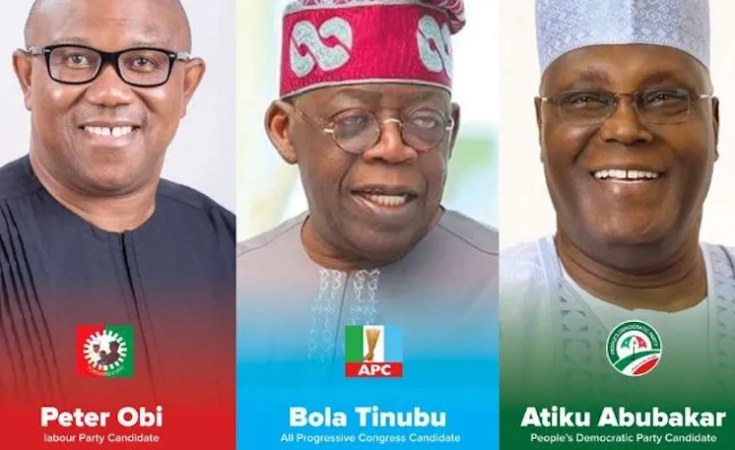Nigerians go to the polls on 25 February to elect a new president, vice-president, 109 members of the Senate and 360 members of the Federal House of Representatives. Eighteen political parties have presented candidates for the various offices and over 93.5 million adult Nigerians are registered to vote.
The elections will be conducted at 176,606 polling stations spread across the 774 local government areas of the country. It is Africa's biggest election and presents huge logistical challenges for the Independent National Electoral Commission, the electoral umpire.
Working with our academic experts, The Conversation Africa has published a number of articles on the elections. Here are five essential reads.
10 factors that could affect the outcome
The 2023 general election in Nigeria is the seventh since the current wave of liberal democracy formally started in 1999. In the last 24 years, Nigeria's democracy has witnessed some growth. But there have been challenges too. These challenges often affect the way voters react at the polls. Ethnicity, religion, money, history and insecurity have been identified as some of the forces that will be at play as voters elect the next set of leaders on 25 February.
Political scientist Jideofor Adibe itemises these factors and the role they may play in the election outcome.
Read more: Nigeria's 2023 presidential election: 10 factors that could affect the outcome
How to poll 93.5 million voters
There are 18 political parties fielding candidates for the presidential election, 1,101 candidates for the Senate and 3,122 candidates vying for federal constituencies in the House of Representatives.
The elections will be conducted across 176,606 polling stations. To make this happen, the electoral commission is deploying 1,265,227 trained officials, among them 530,538 polling unit security officials.
To move electoral materials and officials, over 100,000 vehicles and about 4,200 boats, accompanied by naval gunboats, are required. To cap it all, this is all happening at a time when the country is in a state of insecurity and there is a scarcity of fuel and cash.
Political institutions and governance expert Emmanuel Remi Aiyede breaks down the logistical challenges.
Read more: How to poll 93 million voters - the challenge of pulling off Nigeria's presidential elections
Atiku Abubakar: a 6th time contender
Although it is a crowded contest, one of the leading contenders for the office of the Nigerian president is Atiku Abubakar. The former vice-president (1999-2007) is the candidate for Nigeria's main opposition party, the People's Democratic Party.
Abubakar is not new to the race for Nigeria's presidency. He has been running since 1992 - this is his sixth attempt. He was on the ballot in 2007 and 2019, and lost in party presidential primaries in 1993, 2011 and 2015.
Political scientist Hakeem Onapajo identifies hurdles on Abubakar's way to the presidential villa this time around.
Read more: Atiku Abubakar: Nigeria's perennial presidential candidate is back on the stump
Bola Tinubu: Kingmaker wanting to be king
Another major contender is Bola Ahmed Tinubu. He is a first time contender for the number one office in Nigeria, but Tinubu is widely believed to have been the political kingmaker responsible for the emergence of President Muhammadu Buhari in 2015.
The former governor of Lagos State, Nigeria's commercial nerve centre, between 1999 and 2007, Tinubu also nominated Yemi Osinbajo into his current role as vice-president. He is sometimes described as the godfather of politics in Lagos and, by extension, in other parts of Nigeria.
But can the kingmaker become the king?
Journalist and communications scholar Olayinka Oyegbile analyses controversies surrounding Tinubu and his chances at the polls.
Read more: Bola Tinubu: Nigeria's kingmaker who wants to be king
Peter Obi: from underdog to a leading candidate
Leader of what is described as the Obidient movement, Peter Gregory Obi is a businessman and former governor of Anambra State, in the south-east region of Nigeria.
Obi's supporters coined the word Obidient and have used it to maximum effect in the 2023 campaign for this first-time contender.
With a largely youthful and internet-savvy support base, Obi started off the campaign as an underdog, especially as he is contesting on the platform of the lesser known Labour Party.
Midway into the campaign, he had made quite an impact and was considered one of the leading contenders for the occupancy of Aso Rock villa, Nigeria's presidential residence and office.
Political scientist Kester Onor describes the enigma called Peter Obi.
Read more: Peter Obi could be the force that topples Nigeria's two main political parties
Adejuwon Soyinka, Regional Editor West Africa


